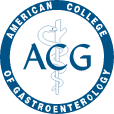Capsule endoscopy is a significant innovation in understanding the complexities of the digestive system. This technique has revolutionized how healthcare professionals diagnose various gastrointestinal disorders. Capsule endoscopy, a minimally invasive diagnostic tool, uses a tiny, swallowable capsule equipped with a small camera to provide images of the digestive tract, especially the small intestine. This blog post will discuss its mechanisms, clinical applications, advantages, and prospects.
What Conditions Can Capsule Endoscopy Diagnose?
One of the primary advantages of capsule endoscopy is its non-invasive nature. It does not require sedation or the insertion of a traditional endoscope into the body. Capsule endoscopy may not provide a complete view of the entire gastrointestinal tract, as it primarily focuses on the small intestine. It is used to help diagnose conditions such as:
– Obscure gastrointestinal bleeding (bleeding of unknown origin)
– Crohn’s disease
– Small intestinal tumors or polyps
– Celiac disease
– Malabsorption disorders
– Inflammatory bowel disease (IBD)
Can you eat during a capsule endoscopy?
Capsule endoscopy is a test that takes about 8 hours. It is not recommended to eat at the beginning of the test as the food can stick to the capsule and cover the camera. Usually, one day before the procedure the patient should eat only liquids after 1 PM. No eating or drinking after midnight. On the day of the procedure, once the capsule is swallowed, nothing should be eaten for 2 hours. Drinking liquids can start 2 hours after the capsule is swallowed; eating regular foods can start 4 hours after swallowing the capsule. The capsule will come out on its own with a bowel movement about 8-20 hours after it is initially swallowed.
The Suitable Foods After Capsule Endoscopy
As you will have already started eating about 4 hours after swallowing the capsule, you can continue eating as you regularly do.
Who is a candidate for capsule endoscopy?
If you have suspected small intestine disorders, unexplained gastrointestinal bleeding, or conditions like Crohn’s disease or celiac disease, you might be a good candidate for capsule endoscopy. The doctor will determine your suitability for the procedure based on your medical history and symptoms.
What preparation is required for capsule endoscopy?
Patients may eat their regular diet up until 1 PM the day before the procedure. After 1 PM we recommend that you switch to a clear liquid diet, which should be continued until bedtime. No more drinking after midnight. No breakfast on the day of the procedure. We recommend taking Reglan 10 mg by mouth at least 1 hour before the procedure.
What happens after capsule endoscopy?
After the procedure, patients return the recording device to their doctor, who reviews the images captured by the capsule. Results are generally available within a few days and further diagnostic or treatment steps may be recommended based on the findings.
How does capsule endoscopy work?
The patient swallows a capsule containing a camera, light source, and transmitter. As it traverses the digestive tract, it captures images of the intestinal walls transmitted to a recording device worn by the patient.
Is capsule endoscopy painful?
Capsule endoscopy is generally not painful. Patients swallow the capsule with water, and the procedure is non-invasive, eliminating the need for sedation or anesthesia.
Are there any risks associated with capsule endoscopy?
While capsule endoscopy is considered safe, there are minimal risks, such as capsule retention (the capsule getting stuck) or incomplete visualization of the digestive tract. These risks are rare and are usually discussed with patients beforehand.
Gastroenterology & Nutrition: The Convenient Destination for Capsule Endoscopy in NY
Searching for Top-Quality Capsule Endoscopy Services in Forest Hills, NY? Our specialists in endoscopy and colonoscopy, Dr. Samuel Davidoff, Dr. Yuriy Israel, and Emanuel Yaakobov, offer professional services with advanced technology and techniques. They evaluate patients with suspected gastrointestinal disorders, ensuring the most suitable approach for the procedure. Check out reviews from our satisfied clients who’ve experienced our services firsthand.
Conclusion
Capsule endoscopy represents a remarkable advancement in medical technology. With its minimally invasive nature and comprehensive imaging capabilities, capsule endoscopy offers patients a more comfortable alternative to traditional endoscopic procedures. Ultimately, capsule endoscopy not only improves diagnostic accuracy but also empowers patients to take control of their health by facilitating early intervention and personalized treatment strategies. To learn more, schedule an appointment now.
Disclaimer
The information provided in this article is for informational purposes only and does not constitute professional advice. Individual experiences with endoscopy procedures can vary. Consult our qualified professionals to make informed decisions based on your specific needs and circumstances.





